“People immediately sense it when you’re faking or trying to please.”
In less than a decade Jerome Reuter has carved out the sort of reputation and back catalog most songwriters would give their eyeteeth to achieve in twice the time. He’s released no less than nine full LPs as Rome, has earned comparisons with Leonard Cohen and Jacque Brel, and been far and away the most critically hailed artist to emerge from the neofolk scene since the turn of the millennium. After following up the tour-de-force triple album Die Æsthetik der Herrschaftsfreiheit with last year’s stripped-down Hell Money, Reuter is set to release a new EP, Hate Us And See If We Mind next week, and already has plans for a tenth LP. We spoke with Jerome about the tension between the personal and the historical in his work, navigating expectations, and what the future holds for Rome.
ID:UD From our first listens of Hell Money it felt like a very different sort of Rome record, both in the more personal tone and the arrangements and production. Is that reflective of your understanding of the record? What did that stem from?
Jerome Reuter: Yes, indeed, that’s my understanding of Hell Money as well. On this record I only had a very loose concept of ideas to work around. The songs are all quite personal, to some degree at least. As you probably know, I usually work with some sort of historical backdrop, but this time I just needed it to be more visceral. Straight from the guts, without any thematic or historical filters and settings.
ID:UD Was it strange to work creatively with such personal material for the first time in a while? Did it effect the writing or recording in any noticeable way? Were your criteria for what did and didn’t work different (ie, do you judge what makes a successful or worthwhile personal song differently from what makes a good historically-oriented song)?
JR: It wasn’t necessarily strange but it was certainly very different. Every aspect of this process was different. I went into the studio and did all the songs on acoustic guitar and sang to it. We would just put one room mic up and that would be it. No separate tracks.
Most of these guide tracks still remain on the actual album, as I did not want to rerecord or overdub them. Some are in free tempo – no click track – to keep them more natural. The best example for this is “Pornero” for which I taped an old telephone to my guitar strap as a microphone while I was playing the banjo. That’s why the voice sounds so Waitsian…my neck was twisted, haha! Some people have wondered about what effect I used on the voice and guitar. The truth is there’s no effect. It is a telephone and a banjo. (Every old telephone can be used as a mic, just exchange the cable so that you can connect it straight to the mixing board…but you have to sing in the part you would hold up to your ear, actually!) And it’s all done with one mic. One take. The only thing added or edited was the little keyboard pad further on in the song.
Something like that would certainly not have been done in the old days. But I’ve come to like that way of working. Although I have to say that the upcoming record was done the old way…but that’s because it has a specific theme again. The difference in the songwriting only regards the different levels of content that I feel like I should address. You know, when I do these “historical” things or whatever you want to call them, there’s several levels on which I’m operating: the purely musical level of “is this song any good, is it working?”, then the lyrical “do these words make sense?”, then content-wise “do they make sense within this record?”, “do they interplay correctly with the other songs?”, blah-blah-blah, plus there’s always the big theme in my head and all these found sounds and samples I want to integrate. It’s quite a brainy way of going about it all, (and certainly a lot of fun), though at the start the songs are just as straightforward as the ones on Hell Money. They’re just inspired by philosophical or historical/political ideas rather than purely by my personal experience.
ID:UD We theorized that Hell Money might be a reaction to the size and scope of Die Æsthetik. Can you take us through the process of working on an undertaking that large? How did “Die Æsthetik” affect your own goals for the project?
JR: Well, in a way after Nos Chants Perdus I felt like doing something utterly brainy again. I mean, I dedicated a lot of time, money and strength to make that album some sort of hi-fi version of ROME’s singer-songwriter elements, and as far as the actual content goes, I still felt like there was a lot of stuff I hadn’t said. It took a whole trilogy to get that out of my system. I’m cured now, I guess, and Hell Money was the cure for the cure, so to speak. In retrospect, Die Æsthetik was basically the most un-commercial release I could possibly do, after the quite mellow Nos Chants Perdus, haha! I guess I just always want to keep myself busy and I want to explore new terrain in what little musical garden I can cultivate with my limited abilities.
“You try to remain openminded, but when you go to the baker’s you want to find bread and not cheese.”
ID:UD It sounds as though dialectics are in play in Rome’s aesthetics as well as politics! Speaking of uncommercial or reactionary decisions, what’s been your understanding of the reactions of those outside of the band to Rome’s developments over the years, from labels and fans, for example?
JR: My understanding of people’s reactions? Well, there’s never been any quarrels with labels regarding the creative part. I wouldn’t sign with anyone dictating what I should sound like. And I only ever changed labels once, and that was because I had to leave before they went bankrupt. So there’s never been any problems in that regard, but with fans it’s obviously different. I mean, every time I release something I get a lot of shit for changing my way of working or whatever. But doing things in my very own way is what made people like me in the first place, or so I gather.
These things are really hard to see when you yourself are involved. It’s very easy for me to examine other people’s careers and make choices and changes in my own because of that, but I can’t really say how ROME’s work is being perceived. I’ve met many artists over the years and some think they are this higher power, whereas I know for a fact that people make fun of them. It’s a very sad thing to witness. Plus these things are beyond your control – to a growing degree.
One has to learn to trust in one’s own judgement. After all, it’s what has brought us this far. It wasn’t some label or some big company pushing huge amounts of money over the counters. It was me doing what I felt like doing and people embracing it and helping me make ROME grow into something bigger than I ever thought it would be. You know, when I started out I didn’t have any plans. Certainly not regarding live shows and TEN albums…it was just something I started out of frustration with the other aspects in my life.
When it comes to reactions of fans, I must say that I totally understand where they are coming from if they think “the new album (insert title here)” sucks big time. I am a music fan myself and as such I also have a specific “kind” of record I would expect from a specific artist. You try to remain openminded, but when you go to the baker’s you want to find bread and not cheese. Then again, I know that it’s the coolest thing to go to the baker’s and be surprised in that way…ok, I think I’ll stop with this baker thing now, haha. It’s like, I know people want you to repeat what you’ve done but they also want you to be “different”. It’s hard to find the balance and in the end you just have to face the fact that there is no pleasing everyone. Just do your work, care about your work and keep it honest. People immediately sense it when you’re faking or trying to please.
ID:UD You recently played a show with Ordo Rosarius Equilibrio and Sol Invictus, two bands with longstanding roots in the neofolk world. Do you see Rome as having at least some footing in that tradition, regardless of the musical changes which the project has undergone?
JR: Well, actually that show didn’t happen, but I am in touch with Tomas from ORE and Tony from Sol on a regular basis. Yes, ROME is rooted in that culture to some degree, but there’s obviously many more influences on what I did or do.
ID:UD In addition to the more personal lyrical angle, Hell Money felt like an almost complete separation from the project’s neofolk side (though perhaps with some of its earlier, noisier sounds resurfacing in a very different fashion). Have you gone into each record with some conscious forethought about which aspects of the project you’d like to highlight explore, or is that more of a natural product of the writing and recording?
JR: It’s a bit of both, actually. Like, on the latest EP, I concentrated on the industrial strands; I felt like doing that. Maybe it’s because I’ve been touring with a lot of ambient industrial bands in recent months, I don’t know. But it had to come out like that.
For Hell Money the songs I wrote came to me naturally – or actually more like a reaction to the work I was doing – and the songs just had to be done this way. Trying to include samples and historical stuff or a more precise theme or whatever would have been going against the material.
ID:UD Speaking of the EP’s industrial sounds, we were wondering if you could speak about the actual composition of the two “Colony” tracks on Hate Us And See If We Mind. While we’ve heard these sorts of sample-based pieces from you before, these two pieces weren’t just longer, but also seemed to be more free-form, almost drifting from sound to sound or mood to mood randomly. What goals did you set for yourself in arranging those pieces, and what (if any) differences between the two were you trying to establish?
JR: Yes, it’s free-form alright, haha. It’s just a completely different way of working with loops and noises and whatnot compared to my first steps in that domain. Before I would include these industrial passages to serve the song or the record, but The Colony is just one long journey that serves no other purpose than taking you along for the ride. It’s something I’ve always wanted to do. It took me some time to come up with the various parts, too. I don’t really know how to talk about the differences between the two. I mean, the second one obviously seems more atmospheric and all, but I guess if I had done third one it would have been different too…I just let the music take over on these pieces…
ID:UD Hate Us‘ other two tracks initially sounded almost like a synthesis of the “classic” Rome sound with a bit more of the introspective and personal tone of Hell Money. Has going through the “brainy” process of Aesthetik, the personal work of Hell Money, and even creating the more experimental “Colony” tracks prompted you to rethink the way you write other material? What directions can you see Rome heading in in the near future?
JR: Yes, those other two songs to me sound like a variations of earlier stuff, but you can probably tell it’s the guy singing who also did Hell Money. Regarding the future: I am still not completely finished with the upcoming album, but I can already say that to me it feels like a journey to the earlier days of ROME. I believe I’ve come full circle. I’ve done 10 albums and various other official releases in 8 years and I now feel like I’ve had my say. I don’t want to become some sort of joke, so I am considering to take it somewhat slower. In this upcoming album, I believe I have found the perfect subject matter and sound for a goodbye. We’ll see.

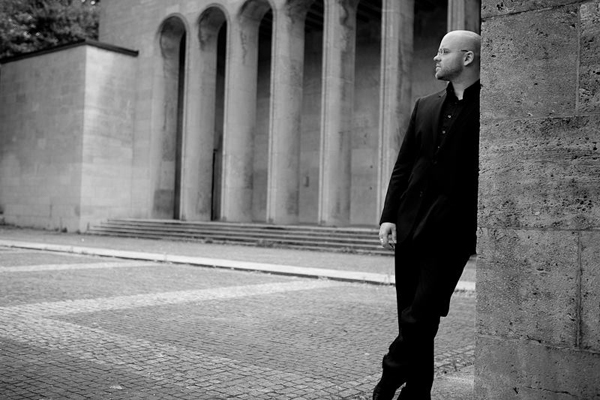

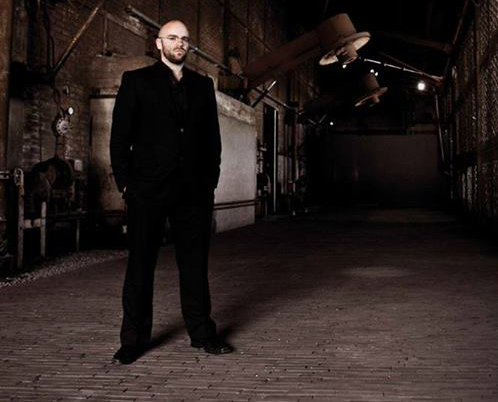
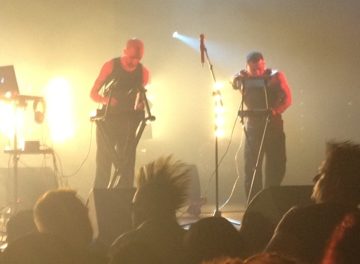
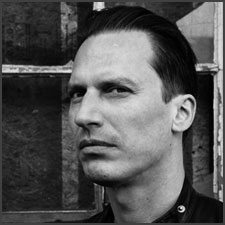

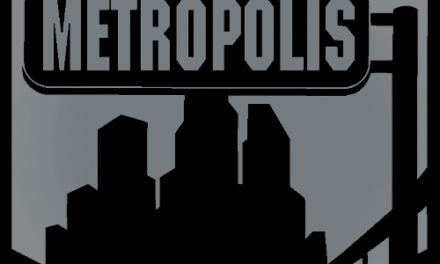
Trackbacks/Pingbacks